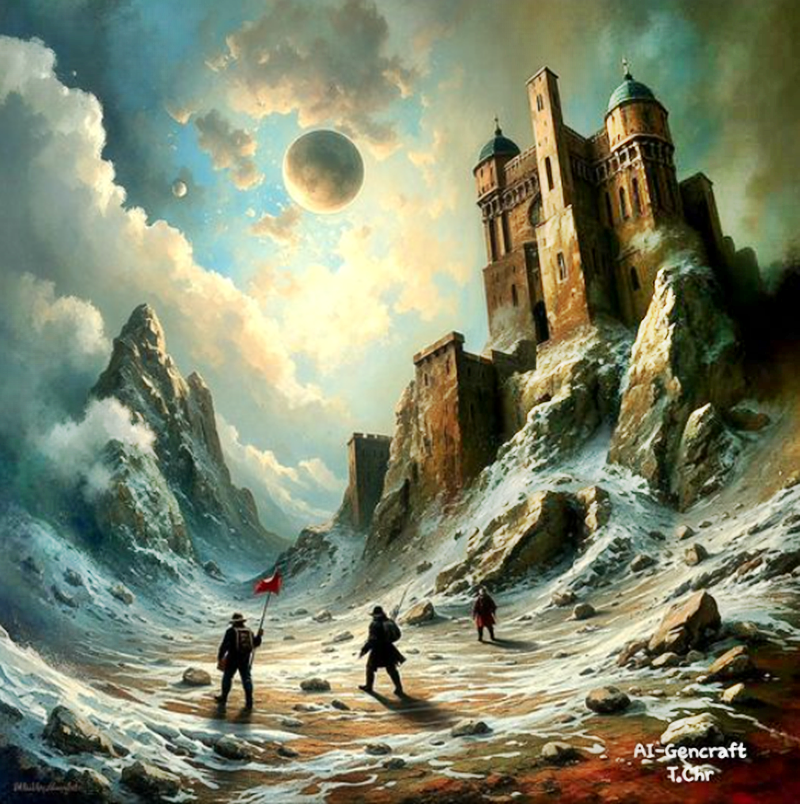"THE SECOND COMING"

By AI-Gencraft/AI-ChatGPT4o-T.Chr.-Human Synthesis-12 Oct.2024
The Second Coming offers a chilling vision of an apocalyptic moment, where societal and cosmic order collapse, giving birth to something new and ominous.
The falcon no longer hears the falconer, symbolizing a loss of control over the forces we have unleashed, while chaos spreads as the center cannot hold. The poem evokes the fragility of civilization and the tension between light and darkness, innocence and savagery.The philosophical message here revolves around cyclical history and transformation. Yeats invokes the concept of "Spiritus Mundi," a collective unconscious that binds humanity to deeper, ancient truths, waiting to resurface in times of crisis.
The "rough beast" slouching toward Bethlehem represents a new epoch—one born not of peace and divinity but of violence and existential dread. This figure challenges traditional notions of progress, urging reflection on the destructive forces that simmer beneath the surface of human history.In the face of such upheaval, Yeats suggests that both the best and the worst in society can reveal their true natures: the best may lose conviction, while the worst are driven by reckless intensity.
The poem warns us that civilization's fragile balance can easily tip toward chaos, and new, dark powers may emerge from it. However, it also hints at the inevitability of transformation, for destruction can pave the way for renewal, though not always in ways we expect or desire.Ultimately, Yeats leaves us questioning what we are birthing in the modern world, and whether humanity is ready for the consequences of its own creations. It's a reminder to stay vigilant, both to our own actions and to the underlying forces shaping our reality..
